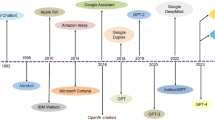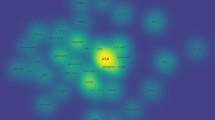Abstract
Current research in dysphagia faces challenges due to the rapid growth of scientific literature and the interdisciplinary nature of the field. To address this, the study evaluates ChatGPT, an AI language model, as a supplementary resource to assist clinicians and researchers in generating research ideas for dysphagia, utilizing recent advancements in natural language processing and machine learning. The research ideas were generated through ChatGPT's command to explore diverse aspects of dysphagia. A web-based survey was conducted, 45 dysphagia experts were asked to rank each study on a scale of 1 to 5 according to feasibility, novelty, clinical implications, and relevance to current practice. A total of 26 experts (58%) completed the survey. The mean (± sd) rankings of research ideas were 4.03 (± 0.17) for feasibility, 3.5 (± 0.17) for potential impact on the field, 3.84 (± 0.12) for clinical relevance, and 3.08 (± 0.36) for novelty and innovation. Results of this study suggest that ChatGPT offers a promising approach to generating research ideas in dysphagia. While its current capability to generate innovative ideas appears limited, it can serve as a supplementary resource for researchers.

Similar content being viewed by others
References
Serra-Prat M, Palomera M, Gomez C, Sar-Shalom D, Saiz A, Montoya JG, et al. Oropharyngeal dysphagia as a risk factor for malnutrition and lower respiratory tract infection in independently living older persons: a population-based prospective study. Age Ageing. 2012;41:376–81.
Namasivayam AM, Steele CM. Malnutrition and dysphagia in long-term care: a systematic review. J Nutr Gerontol Geriatr. 2015;34:1–21.
Clavé P, Rofes L, Carrión S, Ortega O, Cabré M, Serra-Prat M, et al. Pathophysiology, relevance and natural history of oropharyngeal dysphagia among older people. Nestle Nutr Inst Workshop Ser. 2012;72:57–66.
Van den Engel-Hoek L, Harding C, van Gerven M, Cockerill H. Pediatric feeding and swallowing rehabilitation: An overview. Journal of pediatric rehabilitation medicine. 2017;10(2):95–105. https://doi.org/10.3233/PRM-170435.
Mattick K, Johnston J, de la Croix A. How to…write a good research question. Clin Teach. 2018;15:104–8.
Ness RB. Promoting innovative thinking. Am J Public Health. 2015;105:S114–8.
Radford A, Wu J, Child R, Luan D, Amodei D, Sutskever I. Language models are unsupervised multitask learners. 2019. https://www.semanticscholar.org/paper/Language-Models-are-Unsupervised-Multitask-Learners-Radford-Wu/9405cc0d6169988371b2755e573cc28650d14dfe
Language models are few-shot learners. In: Proceedings of the 34th international conference on neural information processing systems. https://doi.org/10.5555/3495724.3495883
Else H. Abstracts written by ChatGPT fool scientists. Nature. 2023;613:423.
Sallam M. ChatGPT utility in healthcare education, research, and practice: systematic review on the promising perspectives and valid concerns. Healthcare (Basel). 2023;11:887.
Park J-Y. Could ChatGPT help you to write your next scientific paper? Concerns on research ethics related to usage of artificial intelligence tools. J Korean Assoc Oral Maxillofac Surg. 2023;49:105–6.
Kung TH, Cheatham M, Medenilla A, Sillos C, De Leon L, Elepaño C, et al. Performance of ChatGPT on USMLE: potential for AI-assisted medical education using large language models. PLOS Digit Health. 2023;2:e0000198.
Zhavoronkov A. Rapamycin in the context of Pascal’s Wager: generative pre-trained transformer perspective. Oncoscience. 2022;9:82–4.
O’Connor S. Open artificial intelligence platforms in nursing education: Tools for academic progress or abuse? Nurse Educ Pract. 2023;66:103537.
Pagnamenta E, Longhurst L, Breaks A, Chadd K, Kulkarni A, Bryant V, et al. Research priorities to improve the health of children and adults with dysphagia: a National Institute of Health Research and Royal College of Speech and Language Therapists research priority setting partnership. BMJ Open. 2022;12:e049459.
Funding
No funding was secured for this study.
Author information
Authors and Affiliations
Corresponding author
Ethics declarations
Conflict of interest
The authors declare no conflict of interests.
Additional information
Publisher's Note
Springer Nature remains neutral with regard to jurisdictional claims in published maps and institutional affiliations.
Rights and permissions
Springer Nature or its licensor (e.g. a society or other partner) holds exclusive rights to this article under a publishing agreement with the author(s) or other rightsholder(s); author self-archiving of the accepted manuscript version of this article is solely governed by the terms of such publishing agreement and applicable law.
About this article
Cite this article
Nachalon, Y., Broer, M. & Nativ-Zeltzer, N. Using ChatGPT to Generate Research Ideas in Dysphagia: A Pilot Study. Dysphagia (2023). https://doi.org/10.1007/s00455-023-10623-9
Received:
Accepted:
Published:
DOI: https://doi.org/10.1007/s00455-023-10623-9




